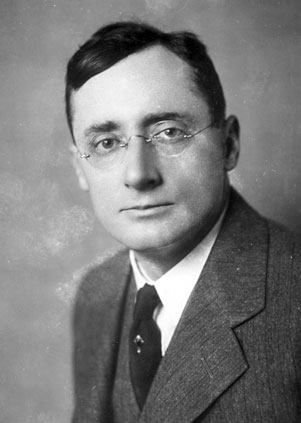
1896
Through a Wharton fellowship, W.E.B. DuBois undertook his classic study of the social and economic conditions of urban blacks.
Redefined Wharton as a Center for Academic Research
Joseph H. Willits, professor and dean
As a Wharton professor and dean, Joseph Willits, the son of a Quaker farmer, became Wharton’s key figure in labor and critically defined the field of personnel and employment. In 1921, he and research professor Anne Bezanson founded the Industrial Research Unit, the first business school research center. This center helped redefine the role of the business school itself.
Much of Willits’ early insight came from hands-on experience from outside of academia: Like many of his colleagues, Willits left his academic post and took a managerial position to assist with America’s entry into World War I. He became an employment manager at a naval aircraft factory, developing a reputation for seamlessly managing everything from hiring, disciplining, training, and maintaining a workforce. On his return to Wharton, Willits went on to head his department and to create a new curriculum in personnel management and industrial relations. Ultimately, the IRU became one of the leading labor research units in the nation — and a new model for academia.
Ultimately, the IRU became one of the leading labor research units in the nation — and a new model for academia.
But Willits, who went on to become dean, wasn’t motivated solely by ambition or arcane academic interest: central to his work was a strong concern for democracy and social justice. He believed that studying personnel management and labor relations was the best possible way to address the social crisis of the wage-labor system.
As dean, Willits spearheaded a controversial curricular reform effort to move the School away from its focus on specialized business — and towards economic research and its application in business. After more than a decade of building the IRU into one of the nation’s most successful research organizations, and by encouraging faculty research, Willits efforts were crucial in building not only Wharton’s reputation for scholarship, but business schools as we know them today.
